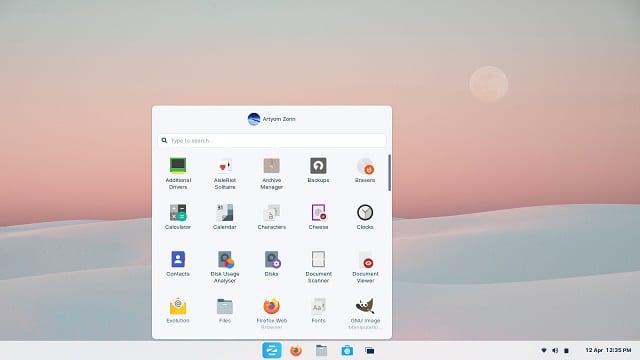
Zorin OS 16 Beta Linux distro is here, with Microsoft Windows 10X mode coming soon
A lot of people hate Windows 10, but I think it is actually quite good. With that said, I'd much rather use a Linux distribution such as Ubuntu or Fedora. With Linux, I feel more safe and secure. No operating system in infallible, but bad guys are more likely to write malware for Windows. Not to mention, Microsoft does "spy" on its users with extreme telemetry. Ultimately, with Linux, I feel like I own my computer. Conversely, with Windows, it can feel like Microsoft owns my PC.
Understandably, switching from Windows to Linux can be a scary affair, but it doesn't have to be. Some Linux distributions look a bit like Windows, so there is a degree of familiarity. Not to mention, with so much being done in the web browser nowadays, the underlying operating system becomes less important. In other words, just having Google Chrome available makes Linux a viable option for most home users these days.

Linux Foundation Research aims to widen understanding of open source projects
Non-profit organization the Linux Foundation today announces Linux Foundation Research, a new division that will broaden the understanding of open source projects, ecosystem dynamics, and impact.
Through a series of research projects and related content, Linux Foundation Research will make use of the Foundation's vast repository of data, tools, and communities and apply quantitative and qualitative techniques to create an unprecedented knowledge network to benefit the global open source community, academia, and industry.
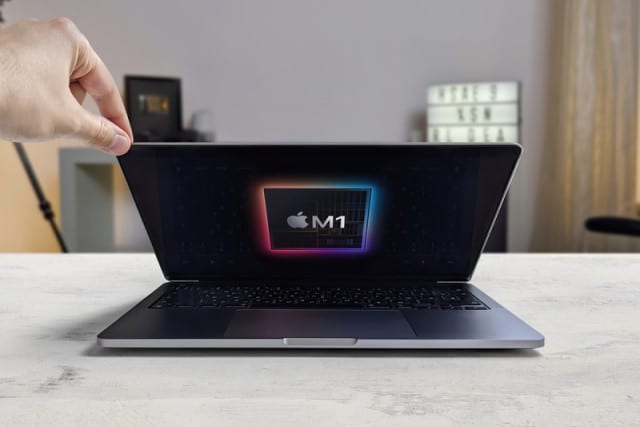
Linux could run on Apple M1 chips in just a few months
Apple's latest M1-based range of laptops and desktops has impressed many with the impressive speed boost over Intel chips. While many macOS fans have been eagerly waiting for their favorite apps to be ported across, others have been waiting to the arrival of Linux.
And with the launch of version 5.13 of the Linux kernel, this should become a reality. The hard work of developers means Linux support could be coming to M1 Apple devices as soon as June this year.

Ubuntu Linux 21.04 'Hirsute Hippo' Beta available for download
Today is April 1, also known as "April Fool's Day," which is a holiday for pranks and jokes. On this day, it can be hard to know what news stories are real and which are fake. Some find April Fool's Day to be fun, while others see it as annoying.
Well, folks, I am happy to say that today, Ubuntu Linux 21.04 achieves final Beta status. And no, that isn't a joke -- it is the real deal! Code-named "Hirsute Hippo," the Beta can be had with your choice of several desktop environments, such as GNOME, KDE Plasma, and Xfce.
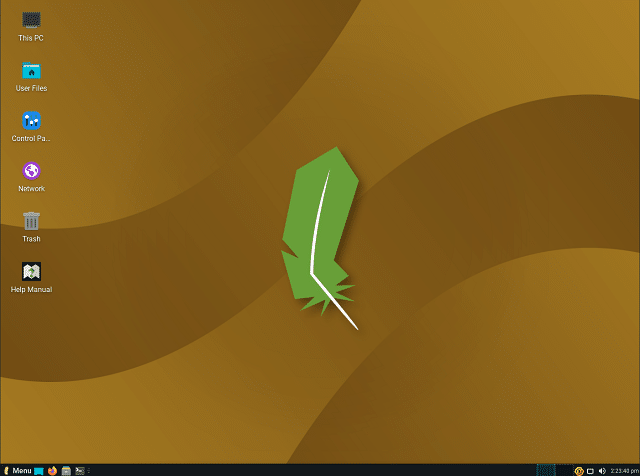
Ubuntu-based Linux Lite 5.4 is here to replace Microsoft Windows 10 on your PC
Windows 7 and Windows 10 aren't terrible operating systems. In fact, they are both very good. With that said, the newest version of Windows 10 has many bugs. Unfortunately, since Windows 7 is no longer supported, its users have a very hard decision to make. They have to decide whether to use an unsupported Windows 7 or upgrade to Windows 10 that is full of telemetry and other "spying" that passes their information to Microsoft's servers. That is a very difficult decision.
Thankfully, there is an arguably better option -- just switch to Linux! Yes, modern Linux-based operating systems will be supported (unlike the now-obsolete Windows 7) and most will run great on aging hardware (unlike Windows 10). Linux Lite, which uses the Xfce desktop environment, is one of the best Linux distributions for Windows-switchers, as it is lightweight, modern, and familiar.
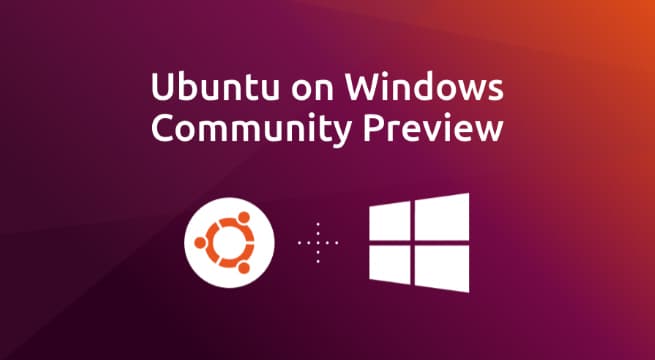
Ubuntu on Windows Community Preview is a special sandboxed build for testing new features on Windows Subsystem for Linux (WSL)
You can’t have failed to have noticed that Microsoft has been showing a lot of love to Linux in recent years, with the most obvious example being the inclusion of Windows Subsystem for Linux in Windows 10. The company has been improving this and adding new functionality regularly. Most recently it made it possible to use Windows Hello in WSL.
Today, Ubuntu Linux maker Canonical releases Ubuntu on Windows Community Preview which is a special build of its OS for WSL 2 that lets users experiment with new features and functionality in a sandbox environment.
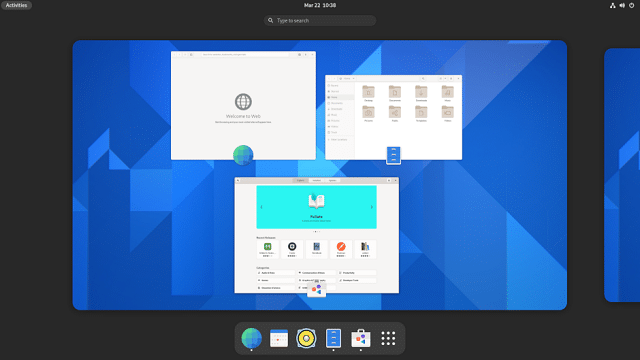
GNOME 40 Linux desktop environment is here
Just yesterday, we told you that Fedora 34 Beta was released, and it was notable for using the upcoming GNOME 40 desktop environment. Well, I have great news Linux fans -- today GNOME 40 is officially released, and yes, it will be used in the eventual stable version of Fedora 34.
But yo, wait, hold on, why is the newest version of GNOME being designated as 40? Wasn't the previous version 3.38? Yeah, that is factual, but no, the developers haven't gone crazy. Actually, as we told you last year, GNOME has a new versioning scheme. It is, understandably, a bit confusing to jump from 3.x to 40, but that's what it is, folks! You know what though? Who cares what it's called as long as it remains great. And once again, it looks to be.

Download Manjaro Linux 21 Ornara with GNOME, Xfce, and KDE Plasma now!
One of the most popular Linux-based desktop operating systems these days is the Arch-based Manjaro. Following a short testing period, version 21 of that distribution is now available for download. Code-named "Ornara," Manjaro 21 uses the fairly new Linux kernel 5.10 LTS.
Manjaro Linux 21 can be had with your choice of three desktop environments -- GNOME 3.38, KDE Plasma 5.21, and Xfce 4.16. All three are great, but unfortunately, GNOME 40 has still not been finalized, so it is (obviously) not included here. If you do want to try an early version of the upcoming GNOME 40, you can download the recently released Fedora 34 Beta.

Fedora Linux 34 Beta with GNOME 40 is here
Oh my. Today is officially the day many of us have been waiting for. Yes, Fedora Linux 34 has officially achieved Beta status, and you can download it immediately. For many Linux users, Fedora is considered the best overall operating system to be based on that open source kernel, and I happen to agree. The distro focuses on truly free and open source software -- a pure Linux experience. It is also fairly bleeding edge, but at the same time, it remains stable for everyday use. Hell, even the inventor of Linux, Linus Torvalds, uses Fedora.
But what is so exciting about Fedora 34 Beta? Well, this pre-release version of the upcoming operating system uses GNOME 40 as its default desktop environment, and version 40 is the most electrifying version of GNOME in years. GNOME 40 is notable for having a horizontal workspace switcher and having the Dash (favorites launcher) moved to the bottom of the screen.

Manjaro Linux 21 Ornara RC1 is here with GNOME, Xfce, and KDE Plasma
So far, the year 2021 hasn’t been particularly good for Linux on the desktop. Windows 10 has matured into a pretty great operating system, and PC sales are up big thanks to the pandemic. Meanwhile, Apple’s transition to ARM for macOS has gone shockingly well. In other words, there haven’t really been any missteps by Apple or Microsoft to help Linux make gains on the desktop front.
The Linux community keeps moving on, however, and despite an overall stagnation, there are still solid operating systems being maintained which use the open source kernel. One of the more popular Linux distro these days is the Arch-based Manjaro, and today, the first release candidate of the upcoming version is made available. Manjaro Linux 21 RC1, code-named “Ornara,” uses kernel 5.10 LTS and can be downloaded immediately with your choice of GNOME 3.38, KDE Plasma 5.21, or Xfce 4.16.
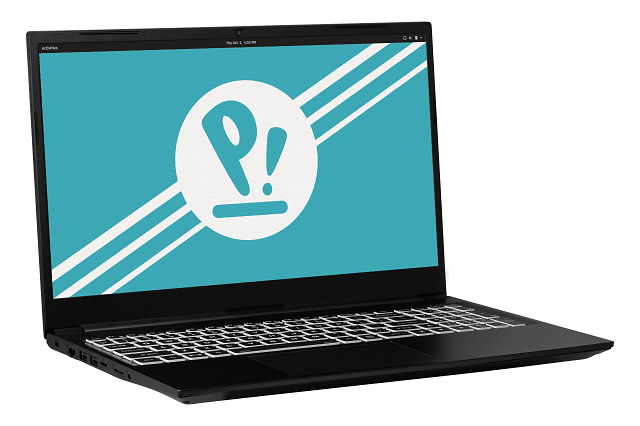
System76 Pangolin is the AMD-powered Ubuntu Linux laptop of your dreams
If you are a Linux user, you can't go wrong with Intel. That company's processors, chipsets, wireless cards, and other hardware have long been very compatible with Linux-based operating systems. An all-Intel system should be a headache-free experience with Linux. If you want to game or do other graphic-intensive actions, however, an NVIDIA GPU has historically been the best option -- a better experience than AMD graphics cards.
Nowadays, AMD-based systems are Linux-friendly too, and Radeon graphics are becoming more commonplace in computers running Linux distros. Today, popular Linux-based computer-seller System76 finally launches its first-ever laptop to have both an AMD processor and AMD graphics -- the 2021 "Pangolin" that we told you about in December. This is not only historic for System76, but it is a godsend for Linux users that are fans of AMD.

Kodi 19 Matrix-based LibreELEC 10 BETA 1 Linux distro is here, but some Raspberry Pi devices are discontinued
Kodi is an excellent open source media player that provides the user with an immersive experience. While the software gets a bad reputation due to people using it for piracy, many folks only use it for legal media consumption. As more and more illegal Kodi add-on maintainers face legal trouble, and streaming services like Netflix and Disney+ remain competitively priced, fewer folks are seeking pirated content nowadays.
Not familiar with LibreELEC? Please know it is a Linux distribution that exists solely to run Kodi. It supports many hardware configurations, including traditional x86_64 for PC and some ARM devices like the Raspberry Pi 4. Following the release of Kodi 19 "Matrix," LibreELEC 10 BETA 1 finally becomes available for download. Sadly, support for the Raspberry Pi 0 and 1 is now discontinued.

Linux kernel found to have a trio of 15-year-old vulnerabilities that could allow root access
Linux-based operating systems are generally recognized as being far more secure than the likes of Windows and macOS -- but that's not to say they're without their flaws. Illustrating precisely this is the discovery of no fewer than three vulnerabilities in the Linux kernel that could be exploited to gain root access to a system.
That researchers from cybersecurity firm GRIMM managed to find so many vulnerabilities in the Linux kernel is one thing, the fact that they have lain there undetected for 15 years is quite another.

System76 launches AMD Ryzen-powered 'Thelio Mira' Ubuntu Linux desktop
System76 started its life as a Linux computer seller only. Essentially, the company would sell re-branded laptops with Ubuntu pre-installed. To provide a class-leading experience, however, System76 also provided top-notch customer service, helping Linux beginners get started with a little hand-holding when needed. This focus on service continues today, and it is largely responsible for the company's success and longevity.
Seeking to better control its own destiny, the company branched out from only being a computer-seller and transformed into a maker too. Its handcrafted Thelio desktops are powerful works of art, comprised of wood, metal, and good ol' fashioned American elbow grease. Yes, these Thelio machines are made in the USA -- Colorado, specifically.

Google works with a Debian developer to make COVID-19 research easier on Linux
The COVID-19 pandemic has made life harder for pretty much everyone. People have lost jobs, businesses have closed, and worst of all, countless people have lost their lives. Thanks to the hard work of scientists, however, we finally have vaccines rolling out and normalcy is on the horizon.
Medical research surrounding COVID-19 isn't over though, as scientists still have plenty of work to do. Olek Wojnar, a developer of the Linux-based Debian operating system, has been working to help these scientists by packaging some software for easy installation on Linux. One of those packages was Google's build software Bazel. Upon finding out about Wojnar's efforts, Google offered to help with the process.
